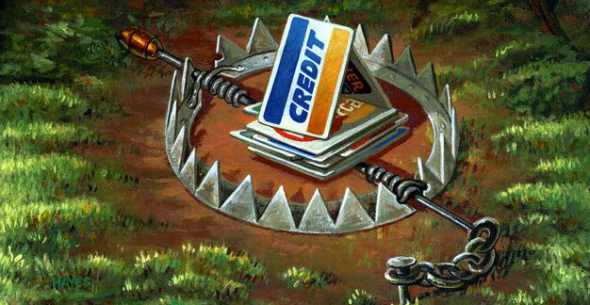Credit Counselling Services – Processes and Pathways to Financial Freedom
April 25, 2024
Intricacies of Debt Settlement – Benefits, Risks, and Strategies for Effective Debt Resolution
May 9, 2024Credit card debt can impose significant challenges for individuals seeking financial stability. High interest rates, compounded balances, and fluctuating payments can contribute to overwhelming debt burdens, often exacerbating existing financial distress. In response to these challenges, this comprehensive guide aims to provide individuals with actionable advice and practical strategies for managing credit card debt effectively and achieving lasting financial freedom.
Credit card debt continues to be a prevalent issue in Canada, with many individuals relying on credit to meet their financial needs. Some may struggle to pay off their balances in full each month, resulting in mounting interest charges and exacerbating debt levels. Consequently, understanding how to manage credit card debt effectively is essential in securing financial well-being and achieving long-term freedom from debt.
The forthcoming guide will explore various approaches to address credit card debt, such as consolidation options, balance transfer strategies, leveraging low-interest credit cards, and employing the snowball or avalanche method of debt repayment.
Furthermore, the guide will offer valuable insights on responsible credit card usage, budgeting techniques, and methods for establishing a strong credit history. By providing practical tools and resources, the guide will enable individuals to confront credit card debt directly and regain control over their financial health.
Exploring Debt Consolidation Options
One approach to managing credit card debt is through consolidation, offering the potential for reduced interest rates and streamlined repayment. Various debt consolidation options exist, each with unique advantages and considerations:
1. Debt Consolidation Loan: This type of loan is obtained through financial institutions and is used to pay off multiple high-interest credit card debts. By consolidating debts, individuals can benefit from a single, lower interest rate and a simplified repayment structure.
2. Home Equity Line of Credit (HELOC): Utilizing a HELOC can provide access to more favourable interest rates than traditional credit cards. By borrowing against the equity in one’s home, individuals can consolidate and pay off high-interest credit card debts. However, this option carries a risk, as it leverages one’s home as collateral.
3. Balance Transfer Credit Card: Some credit card issuers offer promotional low or zero percent interest rates on balance transfers. Transferring high-interest credit card balances to a single low-interest card can simplify payments and reduce interest costs.
Carefully evaluating consolidation options and their respective benefits can aid in selecting the appropriate solution for an individual’s unique financial situation.
Balance Transfer Strategies
Leveraging balance transfer credit cards strategically can offer significant advantages in managing credit card debt. When utilizing balance transfers, individuals can benefit from the following best practices:
1. Select a Card with Low or Zero Percent Promotional Interest: Choose a credit card that offers low or zero percent interest during the promotional period to maximize savings on interest charges.
2. Pay Attention to Balance Transfer Fees: Be mindful of any fees associated with balance transfers, as these could impact the total cost of consolidating credit card debt.
3. Create a Repayment Plan: Develop a clear repayment plan to pay off the transferred balance before the promotional interest rate expires and reverts to a higher interest rate.
Proactively employing balance transfer strategies can considerably reduce interest costs and expedite debt repayment.
Utilizing Low-Interest Credit Cards
When aiming to reduce credit card debt, opting for low-interest credit cards can provide significant advantages over traditional high-interest cards:
1. Lower Interest Rates: Low-interest credit cards typically offer reduced interest rates compared to standard credit cards, benefitting those who may not be able to pay off their balance in full each month.
2. Reduced Finance Charges: Lower interest rates can translate to lower finance charges, making it easier to reduce overall credit card debt and manage ongoing payments.
3. Encouraging Debt Reduction: Low-interest credit cards may help instill financial discipline by encouraging disciplined repayment and reduced reliance on credit.
Opting for low-interest credit cards can facilitate effective debt management and contribute to lasting financial stability.
Employing the Snowball or Avalanche Repayment Method
Implementing proven debt repayment methods, such as the snowball or avalanche approach, can significantly accelerate credit card debt reduction:
1. Snowball Method: This strategy involves prioritizing the repayment of credit card debts in ascending order based on their outstanding balances. By focusing on the smallest debt first and working upwards, individuals gain momentum as they eliminate each debt, fostering a sense of achievement and motivation.
2. Avalanche Method: With this approach, individuals pay off credit card debts in descending order based on interest rates, focusing on the highest interest rate debt first. This strategy can lead to significant interest savings and expedited debt repayment.
Selecting and adhering to a proven debt repayment method can help individuals manage credit card debt effectively and make substantial progress toward financial freedom.
Final Thoughts
Addressing credit card debt responsibly requires a thorough understanding of various strategies, such as debt consolidation options, balance transfer tactics, low-interest credit cards, and proven repayment methods. By leveraging the insights in this comprehensive article, individuals can formulate an effective plan for managing credit card debt and achieving long-term financial stability.
Proactively employing these strategies from Debt Helpers and maintaining a disciplined approach can empower individuals to overcome credit card debt, secure financial freedom, and foster a sustainable financial future. Contact us today for more information on Canadian debt support resources!

